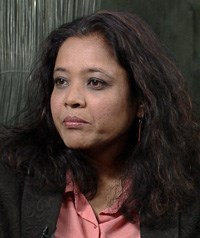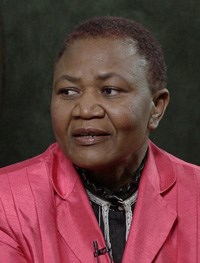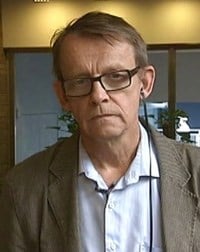
Top stories






More news


Marketing & Media
Ads are coming to AI. Does that really have to be such a bad thing?














"To most women having a baby is a beautiful and romantic thing but here in Africa it's often a matter of life and death," said Redi at the start of the show. "A recent African Union report shows sub-Saharan Africa is trailing behind its 2015 Millennium Development Goal of reducing maternal mortality by 75%. Meanwhile some poor countries in Asia are en route to achieve theirs. So why is childbirth still such risky business in Africa? What's the secret behind other countries' success? And what does it take to give all women the luxury of looking forward to a healthy baby?"
Redi was joined in studio by Deliwe Nyathikazi from The International Confederation of Midwifes and Sanjana Bhadwaj, UNICEF's chief of health. Professor Hans Rosling, a global health expert, linked in from Stockholm.

"If you look at the Countdown 2015 report, maternal bleeding, haemorrhaging and hyper-tension are still leading as the causes of maternal death," said Deliwe. "In this day and age and time no women should die as a result of bleeding."
"30,000 die every year," Professor Rosling said, referring to maternal mortality. "200,000 of those are among the poorest of the poor. It's skewed."
While saying the situation had improved, he told the story of working in Mozambique 30 years ago as the only doctor for 300,000 people, during which time there were 15,000 deliveries.
The guests discussed the myriad causes of maternal death, from illiteracy and a lack of nutrition to inadequate training for midwives and HIV/Aids.

Professor Rosling stressed the need for contraception, saying that 25% of adult cohabitating women in Africa wanted contraceptives but didn't have access to them at their health centres.
He also emphasised the importance of family planning. "Africa will be big," he said. "It may be four billion by the end of the century; the question is whether Africa will be three billion rich or four billion poor. That's about family planning."
However, he rejected the idea of legislating this. "Don't make any rules for the bedrooms," he said.
For Deliwe, the major challenge is to train and equip more midwives. "Sub-Saharan Africa contributes 11% of the world's population, but 3% of the health professionals," she said.

This week's episode of South 2 North premieres at 1930 GMT on Friday,
12 July 2013 and also screens on Saturday at 1430, Sunday 0430 and Monday 0830.
For more information, visit http://www.aljazeera.com/programmes/south2north/, where all episodes are available to watch online.
You can also tweet your questions, comments and opinions to @AJSouth2North or find South 2 North on Facebook: http://www.facebook.com/pages/South-2-North/255419671252120.
Catch up on last week's episode, where Redi asked the treatment of homosexuals in Africa...